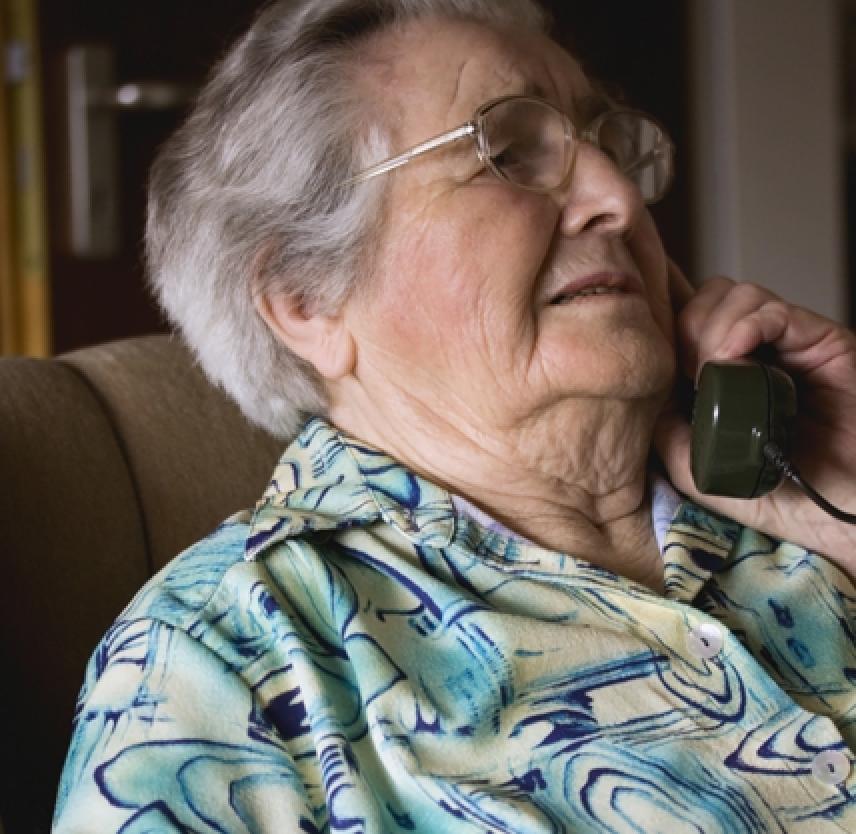
An everyday activity like making a phone call can become a frustrating ordeal if someone at the other end can’t understand you. A brain injury can result in speech problems that interfere with communication. Your voice may not be loud enough, words may slur together, or sounds may not be distinct.
When you’re talking on the phone with strangers, they don’t know why you don’t sound “normal.” The listener misses a lot of signals about who you are and what you are trying to say. In contrast, when you talk to someone face-to-face, you provide additional communication through facial expression and body language. Worse, because they are unable to see you, they may hang up, thinking that you are pulling a prank or that they have a bad connection.
But help is available. Speech-to-Speech (STS) relay is a service that offers free assistance. By dialing 711, individuals with speech impairments can reach a trained Communication Assistant (CA) who will place a phone call and repeat what the caller says. The CA’s role is solely to re-voice each word spoken by the individual with a speech impairment. The service can also be used to place a call to someone with a speech problem.
Since 2001, Speech-to-Speech relay has been a feature of the Federal Communications Commission (FCC)’s Telecommunications Relay Service (TRS) and funded by state or federal government. The FCC requires the service to be available 24 hours a day, 7 days a week across the United States and its territories. CAs must stay on the call at least 15 minutes, and they must protect the confidentiality of the caller. Users of the service may request CAs to retain a list of frequently called contacts or to retain information in order to place future calls. Check out the FCC’s Consumer Facts on STS.
Dr. Robert Segalman experienced the frustrations of not being understood due to his lifelong speech problems from cerebral palsy. He founded the STS relay and tirelessly advocated for the service to be included in federal regulations so it would be available to all. Segalman’s website includes a training video demonstrating how the service works.
Using the telephone should be a convenience, not an obstacle. Dial 711 and try Speech-to-Speech relay, then share your success with others!
Written exclusively for BrainLine by Janet Brown, MA CCC-SLP, American Speech-Language-Hearing Association. www.asha.org.

Comments (5)
Please remember, we are not able to give medical or legal advice. If you have medical concerns, please consult your doctor. All posted comments are the views and opinions of the poster only.
Anonymous replied on Permalink
I have a Traumatic Brain Injury from a drunk driver. At the time; I was a kindergarten teacher. NOT being able to Speak well & Hear has been SUCH a struggle. Until recently; I thought my hearing was fine (I couldn't understand why others had the problem)
I am soo good on the computer; I didn't think I needed the phone! Recently; I have missed it. Thank you for drawing my attention to this FREE service
Anonymous replied on Permalink
For me, learning that there was a general term called Central Auditory Processing Disorder (CAPD/APD) was helpful to explain some subtle hearing processing difficulties associated with Inattentive ADHD, brain concussions, etc. I prefer written visual email myself as I can bypass these very real yet subtle auditory processing challenges. Some auditory processing difficulties involve subtle working memory difficulties (short attention span, short digit span, short letter span). There's a type of epilepsy where a bell, even a human voice, can trigger a subtle complex partial in some persons. In some cases, trying to get every person with a brain injury to use the phone is like asking for a radio to produce a TV picture. Raising the awareness of brain concussions and possible phone difficulties for some is helpful. Does STS help some? Yes, and it's important to know about it (my view).
Anonymous replied on Permalink
I wonder if STS also helps those with TBI that suffer from hearing difficulties. I have been diagnosed with axonal diffuse hearing. In laymen's terms, My brains does not filter sound, everything sounds like a distorted portable AM (popular in the 1960's).
anonymous replied on Permalink
I once spoke on the phone with an STS provider. They said that they are not for hearing difficulties but they are for individuals who have a difficulty speaking clearly.
Anonymous replied on Permalink